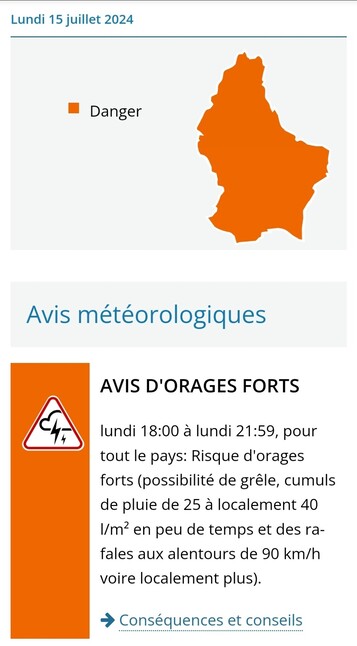2024-07-15 17:21:28
2024-06-16 10:56:00
2024-06-16 00:50:22
Together MoA — collective intelligence of #opensource #models pushing the frontier of #LLM capabilities
2024-06-16 12:29:34
"Auf den ersten Blick unterschieden sich die drei Männer sehr von ihren anderen Klient:innen, sagt Petra Simonowsky. Die kaum Deutsch oder Englisch sprechen, kein finanzielles Polster haben, nicht selten mittellos auf der Straße landeten. Gemeinsam sei allen: „Sie sind abhängig vom Arbeitgeber, der sich auf ihre Kosten bereichert.“"
…
2024-06-17 08:16:58
Innsbruck: Die Mittelgebirgsbahn fährt wieder ins Zentrum
Die bald 125-jährige Geschichte der Innsbrucker Mittelgebirgsbahn lässt bei genauer Betrachtung diese meterspurige Bahnlinie zwischen Innsbruck Berg Isel und Igls als „Stehauf Mandl“ (wie die Tiroler zu nicht tot zu Kriegenden sagen) einzustufen.
2024-06-17 06:50:19
You are what you eat? Feeding foundation models a regionally diverse food dataset of World Wide Dishes
Jabez Magomere, Shu Ishida, Tejumade Afonja, Aya Salama, Daniel Kochin, Foutse Yuehgoh, Imane Hamzaoui, Raesetje Sefala, Aisha Alaagib, Elizaveta Semenova, Lauren Crais, Siobhan Mackenzie Hall
https://arxiv.org/abs/2406.09496 https://arxiv.org/pdf/2406.09496
arXiv:2406.09496v1 Announce Type: new
Abstract: Foundation models are increasingly ubiquitous in our daily lives, used in everyday tasks such as text-image searches, interactions with chatbots, and content generation. As use increases, so does concern over the disparities in performance and fairness of these models for different people in different parts of the world. To assess these growing regional disparities, we present World Wide Dishes, a mixed text and image dataset consisting of 765 dishes, with dish names collected in 131 local languages. World Wide Dishes has been collected purely through human contribution and decentralised means, by creating a website widely distributed through social networks. Using the dataset, we demonstrate a novel means of operationalising capability and representational biases in foundation models such as language models and text-to-image generative models. We enrich these studies with a pilot community review to understand, from a first-person perspective, how these models generate images for people in five African countries and the United States.
We find that these models generally do not produce quality text and image outputs of dishes specific to different regions. This is true even for the US, which is typically considered to be more well-resourced in training data - though the generation of US dishes does outperform that of the investigated African countries. The models demonstrate a propensity to produce outputs that are inaccurate as well as culturally misrepresentative, flattening, and insensitive. These failures in capability and representational bias have the potential to further reinforce stereotypes and disproportionately contribute to erasure based on region. The dataset and code are available at https://github.com/oxai/world-wide-dishes/.
2024-06-17 22:52:00
In both ancient Greek and Latin "Hephaistos' breath" is a poetic way to say fire and often the god's name was used as a synonym for the element. Even iron, "hardest of all things", is softened by fire and melts through the strength of #Hephaistos.
I wrote a whole article on #Hestia
2024-06-17 05:50:42
How Black founders are creating AI models like ChatBlackGPT and Latimer.ai that cater to Black and brown communities, as current AI models lack cultural nuance (TechCrunch)
https://techcrunch.com/2024/06/16/black-…
2024-06-17 06:50:19
You are what you eat? Feeding foundation models a regionally diverse food dataset of World Wide Dishes
Jabez Magomere, Shu Ishida, Tejumade Afonja, Aya Salama, Daniel Kochin, Foutse Yuehgoh, Imane Hamzaoui, Raesetje Sefala, Aisha Alaagib, Elizaveta Semenova, Lauren Crais, Siobhan Mackenzie Hall
https://arxiv.org/abs/2406.09496 https://arxiv.org/pdf/2406.09496
arXiv:2406.09496v1 Announce Type: new
Abstract: Foundation models are increasingly ubiquitous in our daily lives, used in everyday tasks such as text-image searches, interactions with chatbots, and content generation. As use increases, so does concern over the disparities in performance and fairness of these models for different people in different parts of the world. To assess these growing regional disparities, we present World Wide Dishes, a mixed text and image dataset consisting of 765 dishes, with dish names collected in 131 local languages. World Wide Dishes has been collected purely through human contribution and decentralised means, by creating a website widely distributed through social networks. Using the dataset, we demonstrate a novel means of operationalising capability and representational biases in foundation models such as language models and text-to-image generative models. We enrich these studies with a pilot community review to understand, from a first-person perspective, how these models generate images for people in five African countries and the United States.
We find that these models generally do not produce quality text and image outputs of dishes specific to different regions. This is true even for the US, which is typically considered to be more well-resourced in training data - though the generation of US dishes does outperform that of the investigated African countries. The models demonstrate a propensity to produce outputs that are inaccurate as well as culturally misrepresentative, flattening, and insensitive. These failures in capability and representational bias have the potential to further reinforce stereotypes and disproportionately contribute to erasure based on region. The dataset and code are available at https://github.com/oxai/world-wide-dishes/.
2024-06-18 02:15:37
Finbourne, which helps financial companies organize and use their data in AI and other models, raised a £55M Series B at a valuation just over £280M (Ingrid Lunden/TechCrunch)
https://techcrunch.com/2024/06/17/finbourne-ta…





